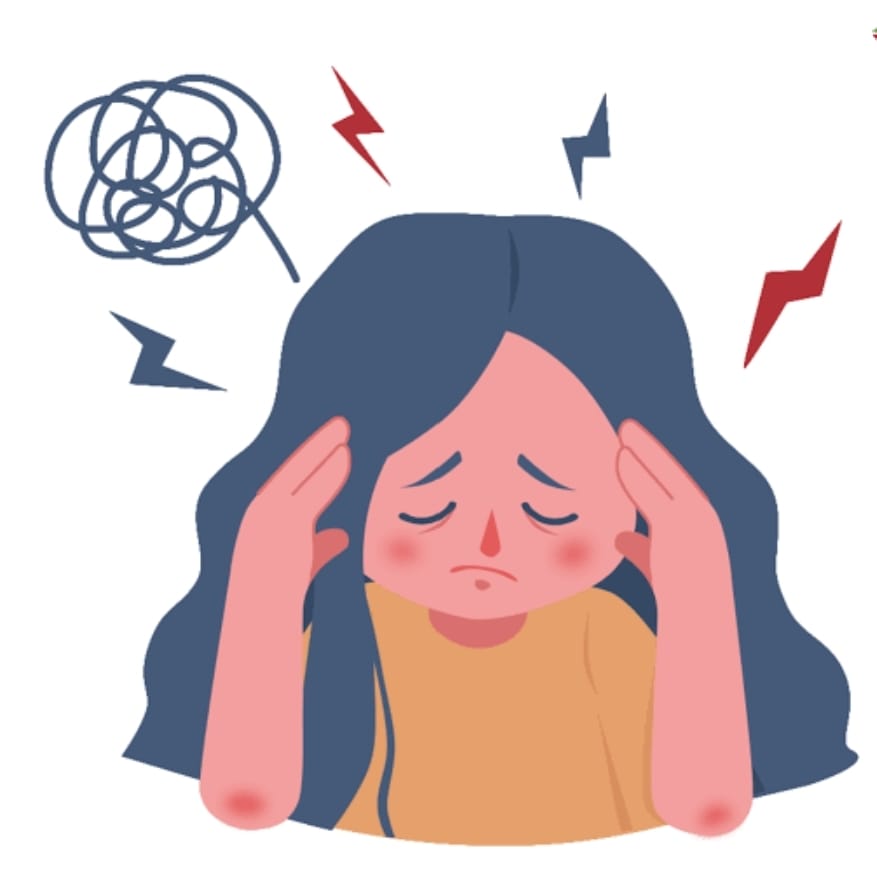Psychological trauma is one of the most significant challenges that can affect a child’s emotional and mental development. It occurs when a child experiences a painful or terrifying event that exceeds their capacity to cope, such as accidents, natural disasters, the loss of a loved one, physical or emotional abuse, or even exposure to violent scenes in real life or through media.

Types of Psychological Trauma in Children
Trauma manifests in various forms, including:
1. Acute Trauma: Arising from a sudden and distressing event, such as a car accident or a natural disaster.
2. Chronic Trauma: Stemming from ongoing exposure to negative experiences, such as abuse or bullying.
3. Secondary (Indirect) Trauma: Occurring when a child witnesses distressing events happening to others, such as observing an accident or the loss of a relative.
4. Developmental Trauma: Resulting from adverse experiences during early developmental stages, such as emotional neglect, family instability, frequent conflicts, or separation from parents.
5. Complex Trauma: A combination of acute and chronic trauma, where the child endures repeated and diverse painful events over time.

Common Symptoms and Signs
The symptoms of trauma vary depending on the child’s age but often include:
1. Persistent anxiety and tension.
2. Sleep disturbances and nightmares, such as unsettling dreams or difficulty falling asleep.
3. Social withdrawal, avoiding friends and family members.
4. Behavioral changes, including sudden anger outbursts, unexplained aggression, or unexpected crying.
5. Difficulty concentrating and challenges in completing schoolwork.
6. Physical complaints, such as headaches or stomach aches, without a clear medical cause.
Long-Term Effects
Unaddressed psychological trauma can lead to lasting consequences, such as:
1. Anxiety disorders and depression.
2. Difficulty adapting socially and forming healthy relationships.
3. Decline in academic performance.
4. Negative behaviors, such as violence or extreme isolation.

Supporting Children in Overcoming Psychological Trauma
1. Open Communication: Create a safe and comfortable environment where the child feels encouraged to share their feelings.
2. Seek Professional Help: Consult child mental health specialists for support and guidance.
3. Maintain Routine: Establish a stable daily routine to enhance the child’s sense of security.
4. Encourage Emotional Expression: Foster emotional release through creative activities like drawing or play.
5. Promote General Well-being: Ensure the child has a healthy diet, enough sleep, and regular physical activity.
The Role of the Family
Providing Emotional Support: A child should feel safe, loved, and accepted within their family. Listening with empathy and understanding helps them express their feelings and overcome pain.
Ensuring Stability:
A stable environment helps reduce stress and anxiety.
Encouraging Positive Expression: Motivate the child to articulate their emotions through positive outlets, such as drawing, writing, or speaking.
Monitoring and Attention: Pay close attention to the child’s behavior to identify unusual changes that may require professional intervention.
The Role of the Community
School Support: Teachers and specialists play a critical role in monitoring the child’s mental health and providing necessary support at school.
Awareness Programs: Organize workshops and training sessions for parents and teachers to enhance their understanding of how to deal with traumatized children.
Accessible Psychological Services: Ensure the availability of mental health professionals in schools and community centers to provide early assistance.
Promote Social Activities: Encourage children to participate in recreational and social events to foster positive relationships and enhance adaptability.
Collaboration Between Family and Community
Collaboration between families, schools, and the wider community is essential to provide a comprehensive support system for the child. Continuous communication between all parties involved helps exchange information and best practices to deliver the most effective psychological and social support.
Addressing psychological trauma requires understanding, patience, and the involvement of professionals when necessary. This approach ensures the child can overcome the trauma and return to a stable, normal life.
Conclusion
A child’s mental health and the ability to address psychological trauma are shared responsibilities between families and communities. Efforts must unite to provide a safe and supportive environment that allows the child to heal, grow, and thrive in a healthy and stable life.
